Teeth chattering is a bit of a strange behavior dogs sometimes exhibit, and it can stem from a variety of causes.
Intermittent, isolated, or sporadic episodes rarely indicate a problem, but there are a few serious health conditions that you’ll want to rule out to ensure your dog is feeling OK and in good health.
Below, we’ll talk about a few of the most common reasons dogs chatter their teeth and try to explain when a visit to the vet is in order.
Common, Harmless Reasons Dogs Chatter
Many of the reasons dogs chatter their teeth are essentially harmless and do not indicate a medical problem. Some of the most common such reasons include:
Low Body Temperature
Most mammals begin shivering when they are cold. Twitching muscle fibers cause friction, which in turn generates heat that helps to raise their body temperature. These muscle movements can involve the jaw and neck muscles, which can cause the teeth to chatter.
Excitement or Anticipation
Tooth chattering is common among dogs who are excited. This appears to just be a behavioral quirk that is more common in some dogs than others. If your dog normally chatters when anticipating a trip to the park or when you tease him with a new toy, he is probably chattering because of the excitement.
Anxiety, Stress, or Acute Fear
Tooth chattering can also arise in response to fear or anxiety. Dogs who chatter from anxiety or fear may knock their teeth together at any time, but it is likely to be most pronounced immediately before, during or after stressful events. For example, dogs who chatter immediately before you leave for work are likely doing so because they are suffering from separation anxiety.
Social Interaction
Some dogs may chomp and chatter their teeth when interacting socially. In such cases, chattering often represents a form of displacement, which usually occurs in dogs who are feeling threatened by another dog.
This is not necessarily a problem if your dog doesn’t exhibit any other symptoms, and he does not appear to be unduly stressed by the encounters, but it is probably best to end the interaction if you notice your dog chomping his teeth or chattering.
Scent Collection
Odor detection and interpretation is an incredibly important part of a dog’s life, and they even have a secondary odor-detecting system aside from their nose. Called the vomeronasal system (or vomeronasal organ), the openings of this apparatus are located within the mouth.
Dogs will move their mouths in a wide variety of strange ways to help bring scent molecules into contact with this system, including chattering. Often, this type of chattering is slower and more deliberate than chattering that results from stress or low body temperatures, and it is more commonly exhibited by males than females.
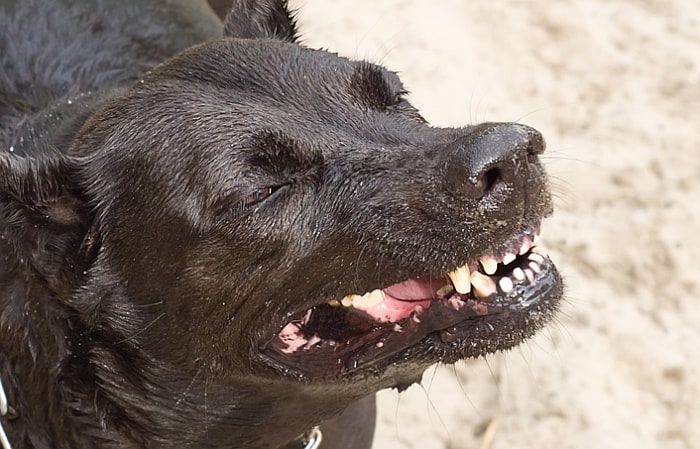
Problematic Chattering Causes
Unfortunately, chattering can also indicate a variety of medical problems, for which your dog will need treatment.
Some of the most common examples of these types of causes include:
Dental Problems
Broken teeth, cavities, and gum disease, among other dental problems, can all cause your dog’s teeth to chatter.
Dogs with dental problems may also eat less food than normal, chew in odd ways or take longer to eat than they normally would, so keep an eye out for these symptoms.
Dental problems can be excruciatingly painful, so always visit your vet at once if you suspect your dog may be suffering from this type of problem.
While most such problems can be treated, it is always best for your pup’s health and quality of life (as well as your bank account) to treat them at the earliest possible opportunity. Dental work on dogs isn’t cheap, but heading to the doggie dentist sooner rather than later may save you from more expensive and intensive surgeries.
Arthritis of the Temporomandibular Joint (TMJ)
Just like humans, dogs can suffer pain in their temporomandibular joint. This can be cause by a poorly formed joint (which can lead to cartilage loss and bone-on-bone contact) or trauma, but in both cases the result is the same: Severe pain and chattering teeth.
Epilepsy
Epilepsy and related seizure disorders can cause jaw clenching and teeth chattering. However, unlike many of the other causes of chattering, which seem to occur in a predictable fashion, epileptic or seizure-induced chattering is usually somewhat random and occurs out of the blue.
Shaker Syndrome
Also called multisystem neuronal degeneration or white dog shaker syndrome, this malady causes damage to a dog’s neurons. This damage leads to full-body tremors, which can cause their teeth to chatter.
This condition can occur in dogs of any color, but small white dogs – particularly West Highland white terriers, Malteses, and similar breeds – are the most frequently afflicted.
Old Age
For reasons that are not entirely clear, older dogs may develop tooth-chattering behaviors as they age. In fact, teeth chattering is more common among older dogs than it is puppies or young adults.
You’ll still want to have your vet check out your geriatric pooch, but if there is no obvious cause and your pup doesn’t seem to be suffering, tooth chattering is rarely a problem in these types of cases.
What Do You Do If Your Dog’s Teeth Begin Chattering? Should You See a Vet?
If there is an obvious reason your dog is chattering his teeth, such as being cold or excited to enjoy a delicious treat, you can just use your best judgment and monitor your dog for any signs of trouble.
Warm him up if he’s cold or go ahead and let him have the dang treat already!
Similarly, if your dog is chattering while sniffing pee spots or when interacting with other dogs at the park, there’s probably no cause for concern. As long as no other symptoms occur, and the cause of the chattering is obvious and easily halted, you probably don’t need to hop in the car and head to the vet.
It’s still a good idea to mention the chattering during your dog’s next checkup, just to be on the safe side, but you’re likely in the clear.
However, if there is no obvious cause for the chattering, or it is associated with eating or other symptoms (such as strange body postures), you’ll want to contact your vet promptly and get your pooch in for a visit.
It can be helpful to record a short video of your dog chattering, as this will allow your vet to see the behavior in action, even if your dog doesn’t begin chattering while in the office.
What to Expect at the Vet
Once at your vet’s office, he or she will ask you questions about your dog’s symptoms and behavior before giving him a thorough physical exam.
Your vet will likely pay special attention to your dog’s mouth to help identify any potential dental or jaw-related problems, before moving on to things like a neurological exam to help identify any nerve or seizure-related disorders.
If a cause can’t be determined, your vet may recommend a number of more elaborate tests, including blood work and various imaging techniques (CT scans, MRIs, etc.) to help lock down the cause.
Unfortunately, your vet may not be able to determine the cause of teeth chattering conclusively. For example, some seizure disorders are very hard to detect and identify.
In such cases, your vet will likely encourage you to monitor the situation and try to rule out as many serious health conditions as possible.
How Are the Causes of Teeth Chattering Treated?
Many (perhaps most) dogs who exhibit teeth-chattering behavior do not require any treatment at all. This includes dogs who chatter while excited or sniffing patches of particularly impressive pee-pee.
Others may only require that you make very small tweaks to their care or daily routine. If your dog is chattering because of the cold, for example, you may just need to get him a coat for going outside or a heated bed to keep him cozy at night.
Dogs who chatter because of fear or anxiety will require treatment that is proportional to the severity of their symptoms. For example, those who chatter in stressful social situations may simply need to find a more relaxed group of playmates to feel better and put an end to the chattering. But, if your dog suffers from generalized anxiety, medications or behavioral therapy may be required.
If your dog has a dental problem, your vet can perform various techniques to fix the problem. This may include drilling or pulling teeth or performing gum surgery. Your dog may need a few days to recover from the procedure before he stops chattering completely, but by fixing the problem, your dog will likely stop once he feels better.
Chattering that precipitates from a neurological cause is not always treatable, although medications may help stop some types of seizures. You’ll just have to work with your vet in such cases to achieve the best possible outcome for your dog.
***
Does your dog chatter his teeth? Tell us about the circumstances in which his teeth start chomping together and what you’ve done to address the problem.
Let us know all about it below!
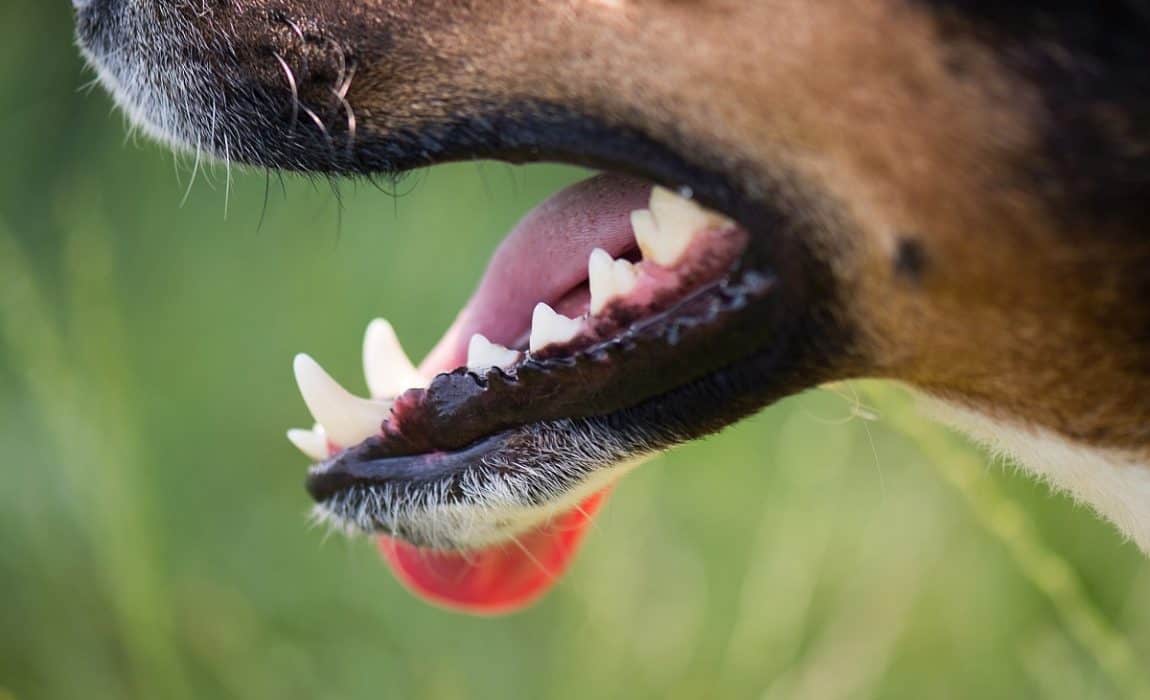

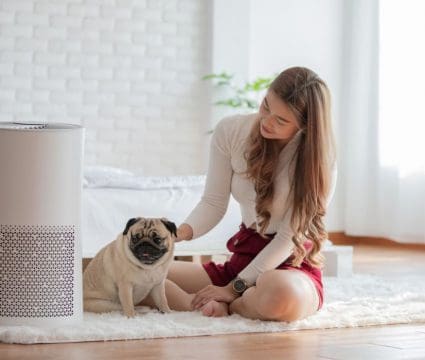
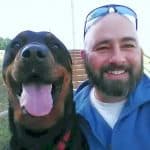




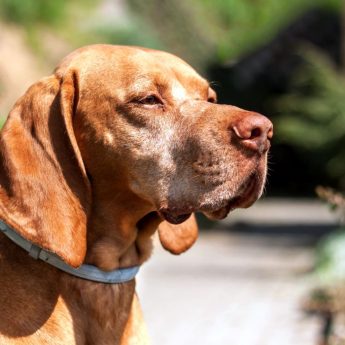
7 Comments
February 25, 2020
My corgi puppy has started chattering her teeth. But only when she’s calm and laying on my lap. Should I be concerned?
December 7, 2019
Hey Ben,
Thanks for this info. My dog will chatter his teeth and drool a little for 10-20 seconds at a time. He’ll also kinda pause his whole body. We thought it was maybe seizures and a bit random, and we couldn’t get it on video due to it happening too fast, and so our vet wasn’t able to help us thus far, but my partner now thinks it happens only when he’s sniffing certain “urine spots” during walks. So still not sure what he has, but it’s helpful knowing that some dogs’ teeth chatter when they sniff.
September 30, 2019
My friends adopted a mini aussie mix that clacks its teeth non stop all day every day. It saw the vet and has no mouth problems. They put it on trazadone but it still clacks. Is there any positive training technique they could try?
March 6, 2019
Hi my 15 year old min pin is on denemarin and several antibiotics for an enlarged liver and a mass in her bladder. She has cataracts in both eyes and is mostly deaf but not completely. Lately maybe the last couple of months, just once in a while when I pick her up to go outside her teeth chatter for just a second. I believe it’s stress or anxiety…. any thoughts?
January 29, 2019
I appreciate this information. However, I would like to comment that anxiety, stress or acute fear are not harmless and any of those conditions should be addressed ASAP for any pet’s well-being.
January 29, 2019
Well said, Jill. I didn’t mean to imply that those weren’t bona fide issues deserving of treatment — only that they aren’t imminent threats.
Thanks for reading!
November 15, 2018
Hi, my 7 lb, 14 year old, Maltese female was just dx with grade 1 sarcoma.
I’m am treating with cbd with a minot amount of thc.
She has started chattering her teeth.
Last night the chattering was worse than normal, so I gave her, her reg dose of 6 drops. She then stopped and went to sleep.
I’ve heard of a product, Life Gold
and Antioxidant an immune builder
Do you have any recommendations that would help us.
She is my ……
Thank you in advance